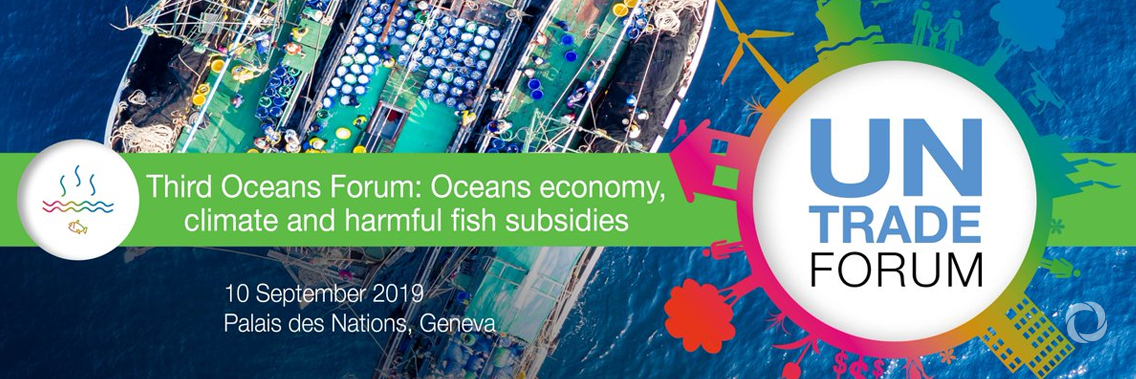Today, one-third of the world’s fish stocks are overfished, up from 10 percent in the mid-1970s. Another 60% of fish stocks have been exploited at their maximum sustainable limit. But overfishing is only one of many problems affecting the oceans.
Over the past 30 to 40 years, the world has lost half of its coral reefs. Other problems include a rise in ocean temperatures and acidity, both a result of the climate crisis.
Despite a growing awareness of these challenges, progress in tackling them has been slow. This is due to many factors, not least the perception that protecting the environment is costly and will, therefore, hinder economic growth and socio-economic development. However, the quest for a healthy environment can be compatible with a prosperous economy and a global trading system.
“Currently, countries are negotiating on a new set of trade rules at the multilateral level, that can put an end to these harmful practises. Successfully concluding these negotiations in 2020, at the 12th WTO Ministerial Conference will be crucial to move towards sustainable fishing practises. It is also a crucial part and parcel of the 2030 Agenda,” said Steven Stone, Chief of Resources and Markets at UN Environment.
The oceans economy, climate and efforts to eliminate harmful fisheries subsidies are all headline topics of the Third Oceans Forum, an event on the sidelines of the September 2019 UN Trade, SDGs and Climate Forum in Geneva. The Oceans Forum is a unique global platform to take stock, exchange experiences and present options for the implementation of trade-related targets of Sustainable Development Goal 14 – Life below water – through the involvement of leading United Nations agencies, regional bodies, government institutions and civil society organizations.
This year’s forum is particularly important, as it precedes the 2020 deadline to deliver on several trade-related Sustainable Development Goal targets on healthy oceans. To support countries to deliver on these targets, UNCTAD, FAO, and UN Environment have come together to develop a draft Inter-agency Plan of Action (the so-called ‘IPoA’), on sustainable oceans and trade. Through this Plan of Action, the agencies are proposing a comprehensive instrument to support countries in their transition to sustainable ocean economies, and to align their trade policies with overall sustainable development considerations.
Original source: UN Environment
Published on 09 September 2019

